Inside Niketown: How Eugene, Oregon became the centre of the latest athletics controversy
French prosecutors have opened a corruption probe into the decision to award the city the 2021 World Championships
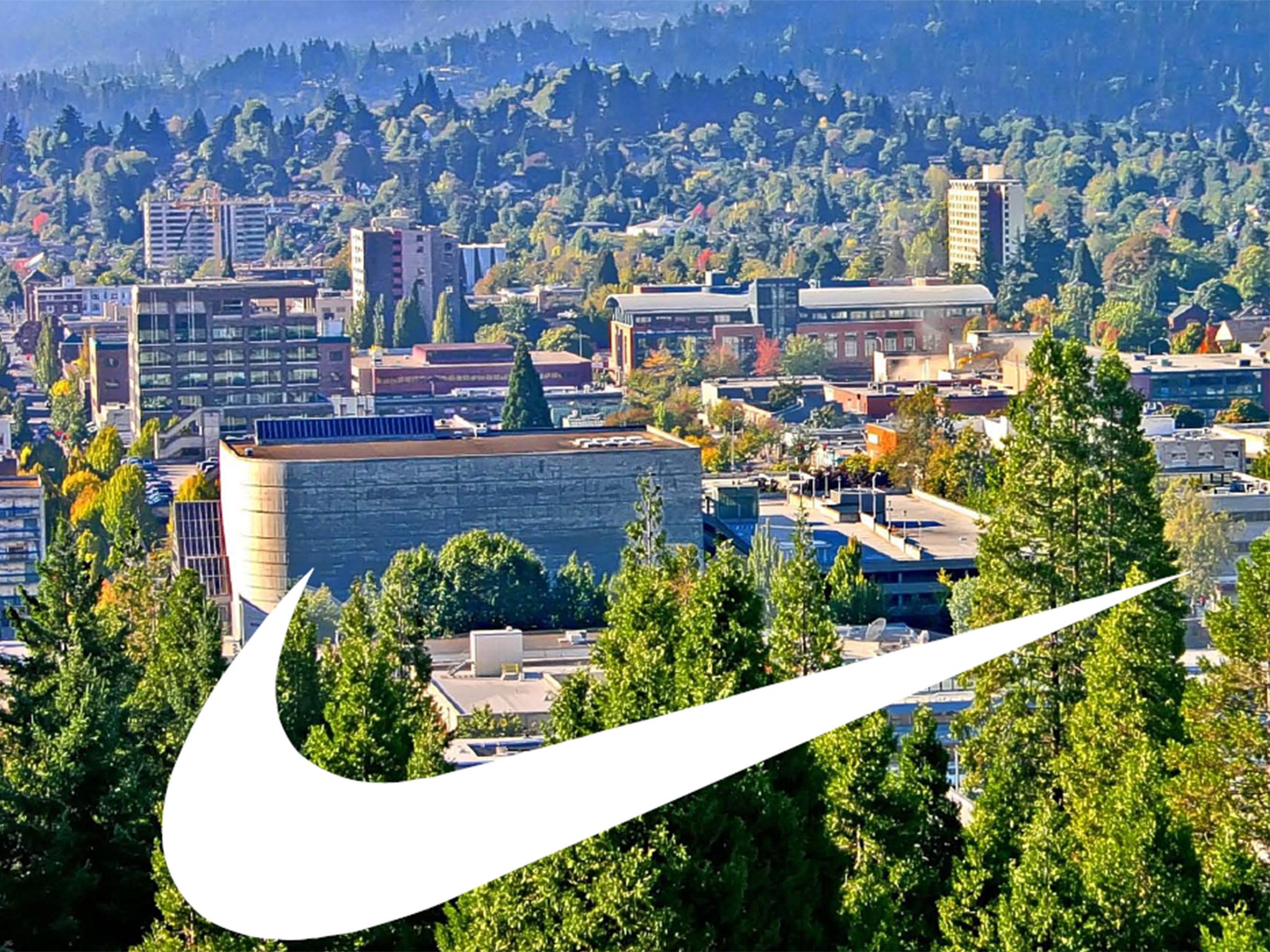
Your support helps us to tell the story
From reproductive rights to climate change to Big Tech, The Independent is on the ground when the story is developing. Whether it's investigating the financials of Elon Musk's pro-Trump PAC or producing our latest documentary, 'The A Word', which shines a light on the American women fighting for reproductive rights, we know how important it is to parse out the facts from the messaging.
At such a critical moment in US history, we need reporters on the ground. Your donation allows us to keep sending journalists to speak to both sides of the story.
The Independent is trusted by Americans across the entire political spectrum. And unlike many other quality news outlets, we choose not to lock Americans out of our reporting and analysis with paywalls. We believe quality journalism should be available to everyone, paid for by those who can afford it.
Your support makes all the difference.At a blind curve on a winding road in the wooded hills here above Eugene, Oregon, a memorial stone marks the spot where distance runner Steve Prefontaine was killed in a car accident in May 1975. To Eugeneans, “Pre’s Rock” is a sacred site, where pilgrims leave their medals and worn out running shoes as a tribute to the man who once held US records in seven different track events at a time.
Prefontaine is a legend in the city that calls itself TrackTown USA. So, too, is the man who trained him at the University of Oregon (UO): Bill Bowerman, co-founder of Nike and father of modern jogging. Nowhere in America is track and field more revered than in the place these two men called home, which ought to make Eugene an uncontroversial choice to host a major athletics competition...
At Hayward Field, the UO campus stadium where the 2021 World Athletics Championships will be held, the town’s top athletes are training in the mid-December mizzle. First out are the Oregon Track Club Elite, a post-collegiate team bankrolled by Nike, whose members include 2012 Olympic decathlon champion Ashton Eaton and Sally Kipyego, who won silver in the 10,000m at the same Games.
Later, it is the turn of UO’s own team, the Ducks. These young athletes all aspire to compete here again, for the US, in six years’ time. “Ever since I got into track (and field), I’ve known there’s something special about Eugene and UO,” says pole-vaulter Matt Hidalgo, 22. “It has a prestige. There’s not many places like this in the world, with such a fan base for track and field.”
That may be so but the way Eugene won the race to host the World Championships has caused a furore after questions emerged over the decision by the International Association of Athletics Federations to award the city the 2021 event without an open bidding process. Last week, French prosecutors opened an investigation to determine whether the decision had been tainted by corruption.
The probe was sparked by an email from a Nike executive to Vin Lananna, the UO athletics director who led the city’s bid, informing him that the new IAAF president, Sebastian Coe, favoured Eugene for 2021. The email was sent in January 2015, three months before the IAAF council held a surprise vote awarding the championships to TrackTown USA.
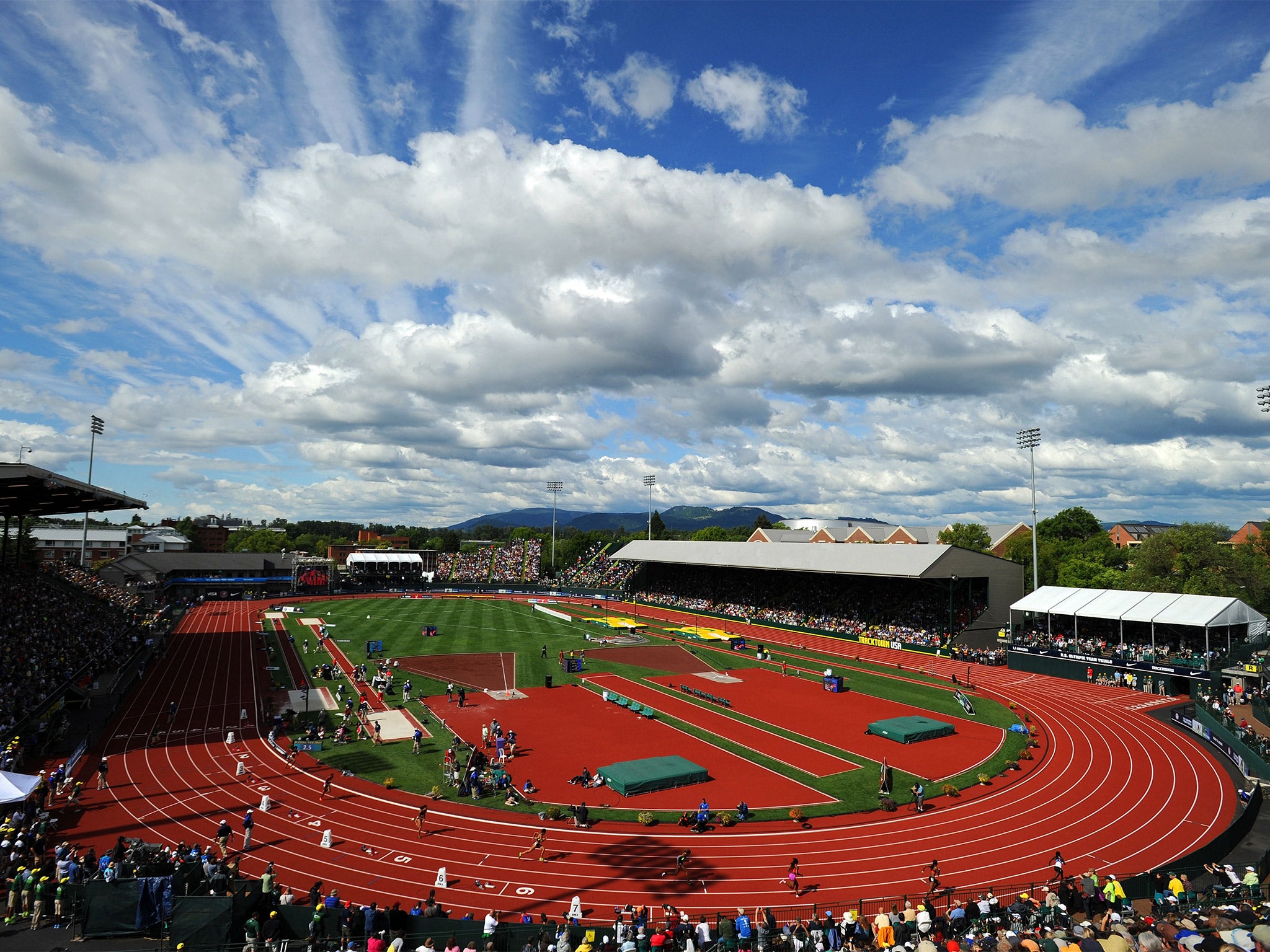
At the time, Coe was on the Nike payroll. Given its close ties to Eugene, the world’s biggest sports brand naturally backed the bid.
The former Olympic running champion quit his position with Nike at the end of last month – several months too late to avoid claims of a conflict of interest. However, he insisted last week that the IAAF had acted not out of corruption, but out of common sense.
Despite having more track and field medals than any other nation, the United States has never hosted a World Athletics Championships. Gothenburg in Sweden, which had also planned a 2021 bid, already hosted the competition in 1995. Eugene is also not the first city to be awarded the event in this way: there was no open bidding process before Osaka hosted the 2007 Championships.
“Every sport is falling over itself to get into the largest sports market in the world,” Coe told BBC Radio 4’s Today programme. The IAAF had decided that 2021 was, he said, “for the foreseeable future, the best opportunity to get the World Athletics Championships into the United States”.
And there is no doubt, Eugene is running-mad. In a city of just 155,000 people, crowds of more than 10,000 regularly pack the stands for Oregon’s state high school track championships, for major college contests or for the annual Prefontaine Classic athletics meet. Hayward Field hosted the US Olympic trials in 2008 and 2012, and will do so again in 2016. Lananna is training the US men’s track and field team for next year’s Rio Games.
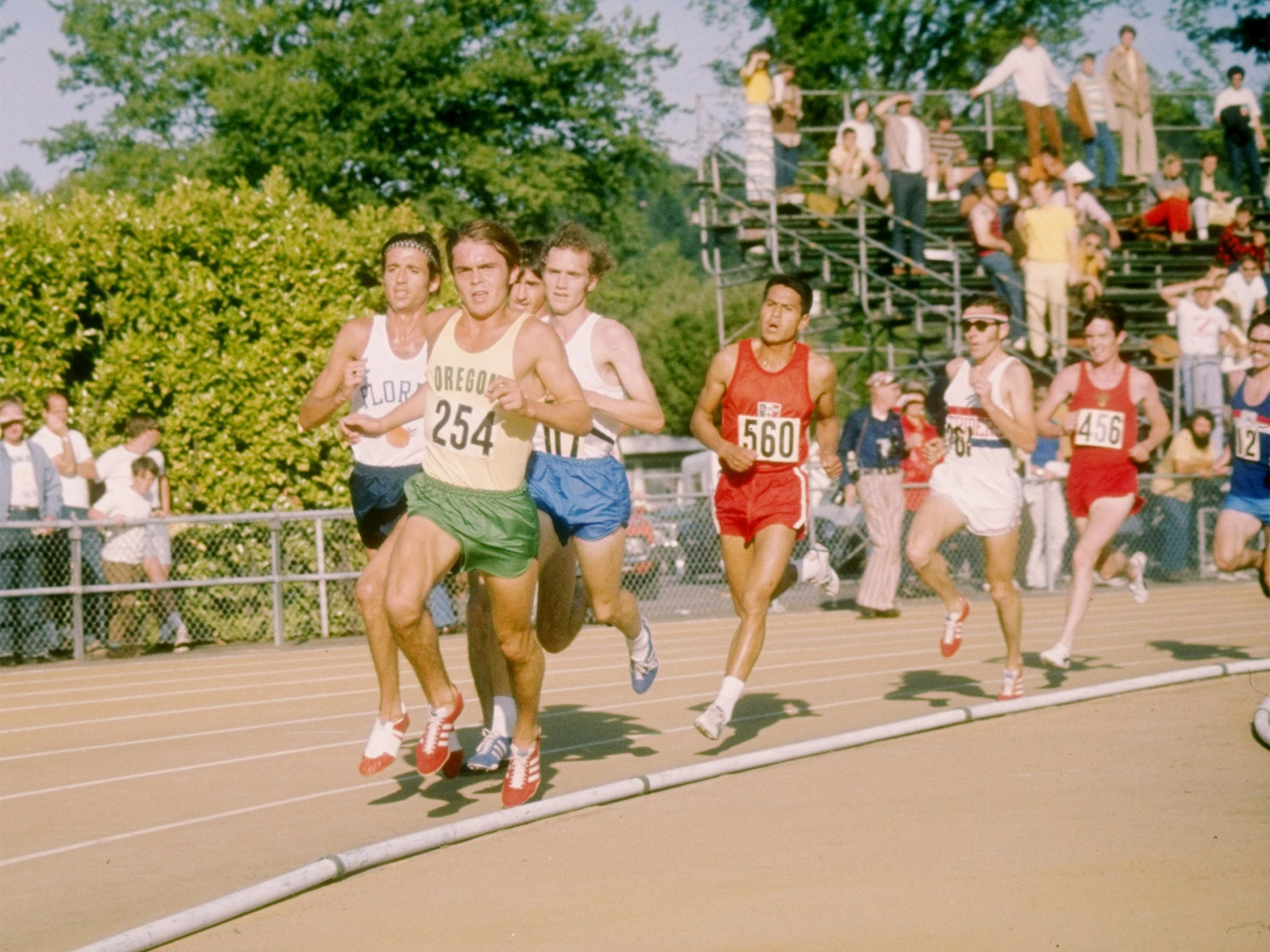
At the side of Hayward Field stands a statue of Bowerman, Lananna’s most celebrated predecessor as UO coach. Bowerman founded Nike in 1968 with one of his runners, Phil Knight, after famously using his wife’s waffle-iron to craft the prototype sole for the signature running shoe. The first waffle shoes were introduced at the 1972 US Olympic trials – in Eugene.
Since Bowerman’s day, the UO stable has continued to turn out world-class runners including Alberto Salazar, Joaquim Cruz, Galen Rupp and now Edward Cheserek, a Kenyan-born, 21-year-old distance-running phenomenon tipped to be UO’s next international athletics star. Bowerman not only revolutionised a sport; with Nike and his 1967 book, Jogging, he also invented a pastime.
Paul Swangard, Hayward Field’s longstanding stadium commentator who also teaches sports business at UO, says: “Bowerman built a fan base for the sport which maintains a tight grip on the culture of the city. Anyone here who is trying to stay healthy, they start by going out for a run. Eugene is built around an infrastructure of running trails that’s the envy of other communities.”
Knight, still chairman of Nike, is known here in Eugene as “Uncle Phil”. He has contributed tens of millions of dollars to the construction of campus sports venues and buildings, while his company provides uniforms for all its student athletes, not just those on the track and field team. “You get proud to wear the Nike Swoosh when you run here,” says Hidalgo.
Eugeneans’ loyalty to the men who founded Nike is reciprocated by the brand, which today has its headquarters in Beaverton, 100 miles north of Eugene. “Nike still brings its new management hires to Eugene to show them Hayward Field and Bowerman’s office downtown, where he developed his shoes,” Swangard says. “They do product testing here, they have the elite programmes here. Nike sees Eugene as an important part of its brand strategy.”
Yet the questions hanging over Eugene 2021 have now linked this small northwestern city into a global network of related controversies involving both Nike and the IAAF. Last month, it emerged that David Okeyo, a vice-president of Athletics Kenya and an IAAF council member, was the subject of a police investigation after being accused of siphoning funds from a sponsorship deal between the sport’s national association and Nike. Kenya’s enthusiasm for running outstrips even that of Eugeneans.
Okeyo, who was subsequently referred to the IAAF’s ethics commission, denied the allegations, insisting that all the money involved was “fully accounted for”. Meanwhile, a Nike spokesman told The Sunday Times that the company was cooperating with the Kenyan investigation and had acted with “integrity” in its relationship with Athletics Kenya, on the understanding that the funds from the sponsorship deal would be “used to support and service the teams and athletes”.
That controversy came just days after the IAAF provisionally suspended the Russian athletics team from all competition, following the release of a World Anti-Doping Agency report which contained claims of state-sponsored doping. The Russian athletics federation, Araf, has since accepted a full, indefinite ban until it overhauls its drug testing system.
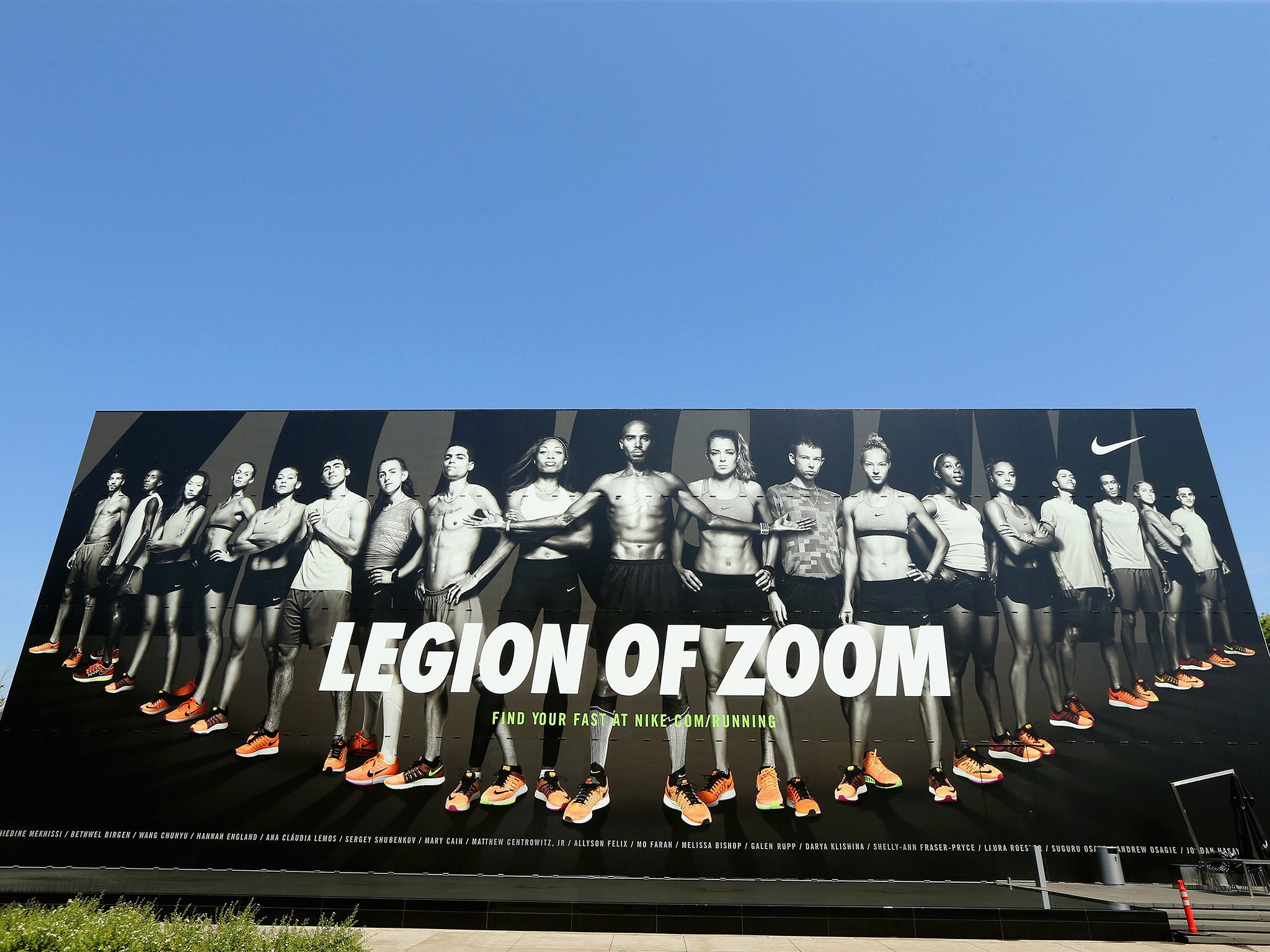
Coe was elected president of the IAAF in August and soon after announced root-and-branch reform of the organisation to counter the possibility of corruption. The twin controversies in Kenya and Russia had already threatened to make a mockery of Coe’s reform plan, weeks before he himself became the focus of the French investigation.
Over the summer, Nike was also drawn into the Fifa football corruption scandal. Though not an official Fifa sponsor, the company has its own separate sponsorship deals with several national teams including Brazil. That agreement goes back to 1996, when the firm reportedly paid an additional fee to a sports marketing company, Traffic Group, to facilitate the deal.
A wave of indictments against Fifa, unsealed in May, included claims that Traffic Group and its founder, Jose Hawilla, subsequently used Nike’s money to make illegal bribes to top Fifa officials. For its part, the company said the indictments “[did] not allege that Nike engaged in criminal conduct”, nor that “any Nike employee was aware of or knowingly participated in any bribery or kickback scheme”.
As the world’s biggest sports brand, Nike surely expects to weather occasional allegations of corporate or financial wrongdoing, founded or unfounded. But the company also has its own alleged doping problem. Salazar, who went on from Oregon to win the New York Marathon three years in a row, is now one of the world’s leading running coaches, heading up the prestigious Nike Oregon Project, a stable of elite runners based close to the company’s HQ in Portland.
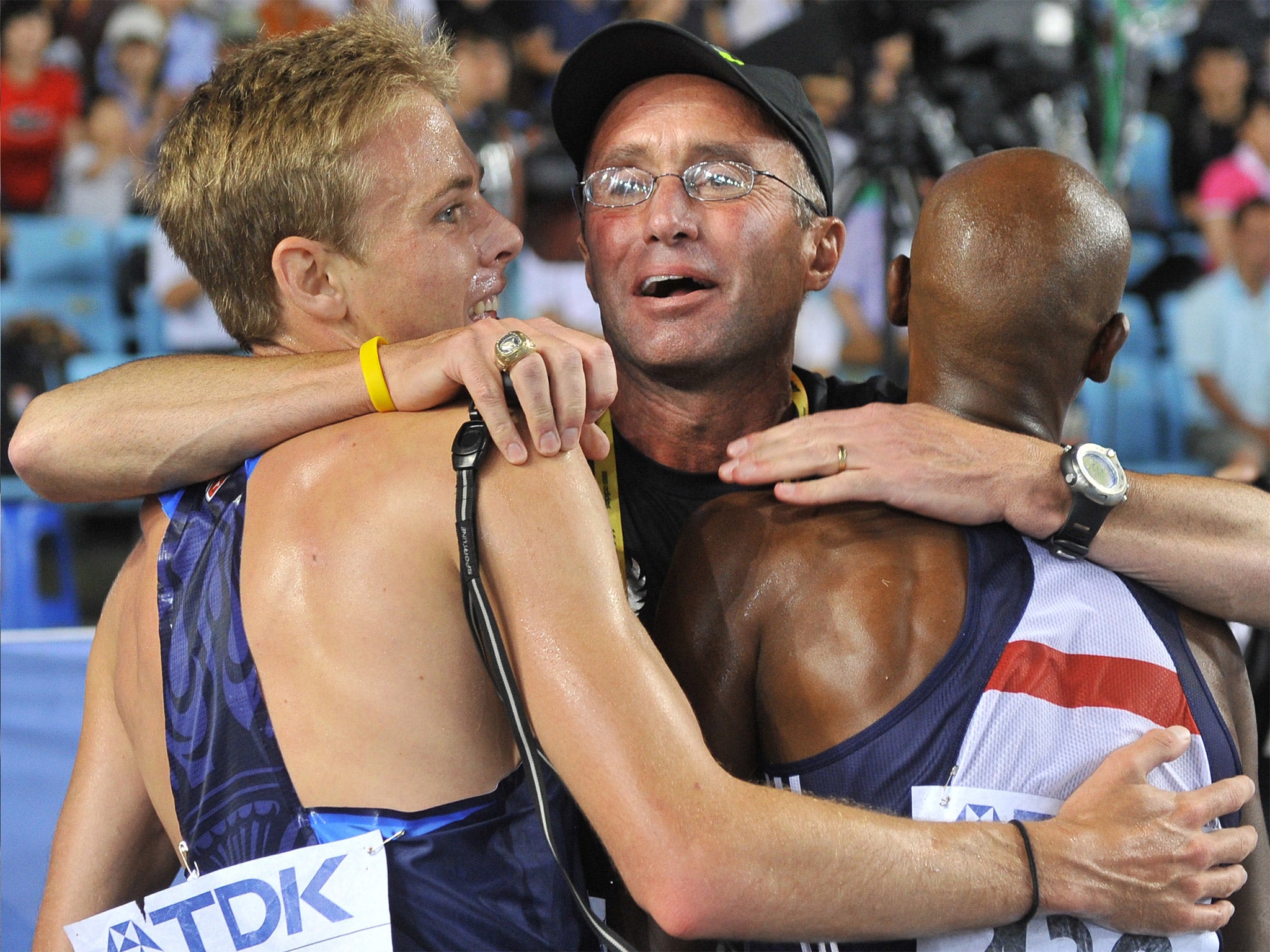
Salazar’s secretive coaching techniques supposedly involve a combination of gruelling training and cutting edge bioscience. Among the runners at the Oregon Project are Mo Farah and Rupp, who won gold and silver respectively in the 10,000m at the 2012 London Olympics.
In June, Panorama aired allegations from a number of his former athletes and staff that Salazar was involved in doping, including claims that Rupp was given testosterone in 2002, when he was 16 years old. Rupp now holds US records in several distances. There has been no indication that Farah was involved in any doping. Salazar and Rupp, both UO graduates, denied any wrongdoing, with Salazar telling the BBC that the allegations by his erstwhile colleagues were “based upon false assumptions and half-truths in an attempt to further their personal agendas”.
Back here in Eugene, Nike’s relationship with the city has been under scrutiny, too, as the Eugene School Board recently debated whether to sign a deal with Nike to provide outfits for athletes at four local high schools to the tune of $300,000 (£200,000) in kit over the next five years. In return, the schools’ teams would wear only Nike products, which seems a moot point given the ubiquity of the Swoosh here.
At the Original Pancake House restaurant, close to the UO campus, the walls are adorned with autographed photos of UO sports stars from the Prefontaine era to the present day. The staff all wear Nike trainers and t-shirts, and their regulars include many of the town’s track heroes and their coaches. Waitress Isabella Miranda’s boyfriend is on the UO football team.
“When you come to Eugene as an athlete, you’re spoiled,” says Miranda, 19. “Nike sent my boyfriend a huge bag full of clothes just the other day. The seats in the football facility are Lamborghini leather!” And if a customer came to the Pancake House wearing Reeboks? She laughs at the mere suggestion. “Nobody here wears Reeboks,” she says.
Join our commenting forum
Join thought-provoking conversations, follow other Independent readers and see their replies
Comments